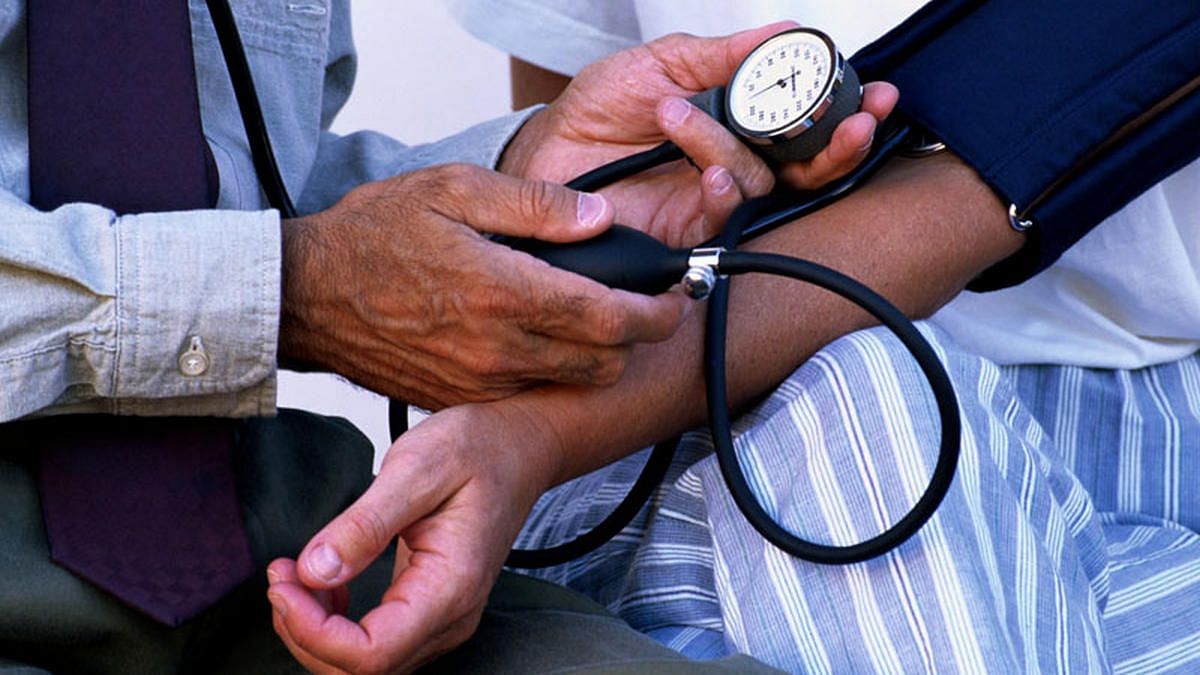New Delhi: An international group of experts has issued a call to include recommendations on low-sodium, potassium-enriched salt in hypertension treatment guidelines across countries, including India, amid surging cases of hypertension in populations.
The recommendations were published in the American Heart Association’s (AHA) scientific journal Hypertension Monday. AHA is a US-based non-profit organisation, known for publishing guidelines on cardiovascular diseases, their prevention and standards of care.
Through the global collaboration, which included researchers from the US, Australia, Japan, South Africa and India, 32 separate hypertension treatment guidelines — two from global organisations, five from regional organisations and 25 from country organisations including India — were reviewed.
The researchers, in their review results, noted that high levels of sodium intake and low levels of potassium intake are widespread, and both are linked to high blood pressure and greater risk of stroke, heart disease and premature death.
“Using a salt substitute where part of the sodium chloride is replaced with potassium chloride addresses both problems at once,” they said.
The researchers found that all guidelines referred to sodium reduction, with most recommending reducing salt intake. Many also recommended increasing dietary potassium intake, but only two — Chinese and European guidelines — made a specific recommendation for using potassium-enriched salt.
Alta Schutte, from The George Institute for Global Health and UNSW Sydney, a researcher associated with the project, said in a statement that despite data from randomised controlled trials demonstrating the health benefits of potassium-enriched, sodium-reduced salt substitutes, they are rarely used.
“We found current clinical guidelines offer incomplete and inconsistent recommendations about the use of these salt substitutes,” she stated.
“Given the wealth of evidence available, we feel it’s time to include salt substitutes in treatment guidelines to help address spiralling rates of uncontrolled high blood pressure around the world and reduce preventable deaths,” Schutte added.
Also Read: Transmissible Alzheimer’s? In a first, UK study finds the disease can spread via medical procedure
Add potassium to salt
Most of the varieties of salt currently used do not include any potassium, even though some brands do offer a lesser amount of sodium.
But potassium-enriched salt can be used as a direct replacement for regular salt (sodium chloride) when seasoning, preserving or manufacturing foods, health experts have suggested.
They have also said that while other salt reduction strategies make foods taste less salty, potassium-enriched salt is undetectable by most people.
The researchers have suggested potassium-enriched salt with a composition of approximately 75 percent sodium chloride and 25 percent potassium chloride for all patients with hypertension, unless they have advanced kidney disease, are using a potassium supplement, are using a potassium sparing diuretic or have another contra-indication.
For the general population, too, it has been suggested that if one has to add salt to foods, potassium-enriched salt with a similar composition can be used.
The latest recommendation may have immense significance for India, where according to a 2023 study carried out by the Indian Council of Medical Research (ICMR) and Madras Diabetes Research Foundation, 35.5 percent of the population or 315 million people have hypertension.
A 2023 study by the ICMR had also shown that the estimated mean daily salt intake for Indians was 8 gm, much higher than the recommended daily limit of 5 gm. It had also said that cardiovascular diseases — which are directly linked with high sodium intake — account for an estimated 28.1 percent of total deaths in India.
In 2016, 1.63 million deaths were attributable to hypertension compared to 0.78 million deaths in 1990, noted the study.
‘Intervention urgently needed for India’
The study which reviewed hypertension guidelines from various countries also reviewed recommendations by the Association of Physicians of India, Cardiological Society of India, Indian College of Physicians, and Hypertension Society of India.
These guidelines prescribe salt intake of less than 5 gm per day while also advising patients to avoid added salt, processed foods, and salt-containing foods, such as pickles, papads, chips, chutneys, and preparations containing baking powder, said the review.
Additionally, it is also advised that patients get adequate potassium intake from fresh fruits and vegetables which may improve blood pressure control in hypertensives.
The Union health ministry’s 2016 standard treatment guidelines on hypertension, too, advise reduced intake of salt for those who have hypertension, but have no recommendation related to altering the composition of salt.
“But there is enough evidence to show that this easy intervention can make a huge impact on reducing hypertension at population level and India should consider it urgently,” Dr Vivekanand Jha, executive director at The George Institute for Global Health, India, who was also associated with the review, told ThePrint.
(Edited by Nida Fatima Siddiqui)
Also Read: Daily dose of multivitamins may help improve memory & cognition in 60+ age group, finds new US study

